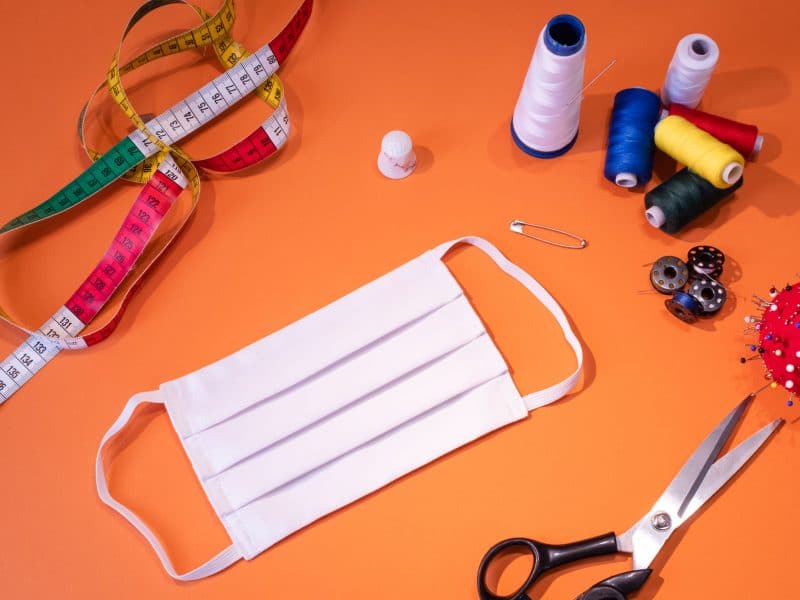The global pandemic has had far-reaching consequences for the daily life of most people around the world. The fashion industry is just one aspect, but it feeds into several other areas of our lives and how we live as a society. As well as retail and the economy, fashion impacts ecology, mental health and wellbeing. All are topics which have been much discussed throughout the Covid-19 pandemic. So, from lockdown to online shopping, sustainability to self-care, which changes in the fashion industry will you feel as a consumer?
Short term panic
Of course, from March to May during those months of UK-wide lockdown, we saw massive financial challenges for all areas of retail, fashion included. Shopping moved, in the most part, online. And with substantial delivery delays for most outlets, even this seemed a challenge for those unprepared retailers. This was a time when established online suppliers, like us here at Elle Courbee, could show our strengths.
Supply chain responsibility
Lockdowns and closures have massively impacted supply chains. High street retailers have performed to varying levels of responsibility when it comes to honouring the contracts that they had in place with overseas manufacturers. And indeed, the more distant the links in the supply chain the less public pressure is visible for buyers to support their suppliers. So looking ahead, we may see further challenges as supply chains manage production.
The power of local
Many big name fashion brands with UK manufacturing capability felt benefits during the pandemic. So as we move forward, we will potentially see more businesses around the world looking to re-shore their manufacturing to their home country. This power of keeping local allows designers to be more agile – to buy smaller and react quickly. With the ability for manufacturers to ship globally through sellers like Elle Courbee, high quality products remain accessible.
Design influence
On the other side of finance is the artistic impact of the Covid-19 lockdowns. The way that our lives have changed has influenced the shape of clothes coming out of design houses. Milan and London fashion weeks showed a focus on “waist-up” design. Professional wear is, nowadays, seen through the lens of the video call. So designer labels are moving to collars or necklines and detailing around the top half of the body is more elaborate. Draw strings on trousers are prominent, while tailoring around your bust is increased. So don’t forget your shaping cami under all that!
Physicality
One thing is for sure, in the medium term we will see less physical presence in the fashion industry. By this we mean more online shows and shops and less seeing and touching fabrics in the flesh. Alessandro Michelle, creative director of Gucci, intends to end mid-season collections and reduce the number of shows from 5 to 2 per year. Perhaps this feels counter to the nature of fashion as a visual and tactile industry. However, it may be a way for brands to build loyalty and trust in their customers through the quality of garmentry supplied. This responsibility for the quality of fabrics and fit is something that we are passionate about at Elle Courbee.
Sustainability
Coming out of lockdowns, some stores reported enormous queues of customers seeking their retail hit. However, in the long term, forecasters are predicting a much stronger desire for sustainability in the fashion industry. And often this comes down to repurposing clothes. For many of us, our wardrobes contain a multitude of forgotten garments just itching for a new lease of life. Indeed, by layering over a foundation of comfortable shaping shorts, that decade old dress may well be as good as new!
So, as we move into a world which learns to live with the presence of Covid-19, how will your shopping and wearing habits change? Perhaps you’ll buy less but wear more of your existing wardrobe. Or maybe you’ll become a dab hand at dressing for the zoom call while remaining comfortable in your joggers! We know that the industry is versatile and resilient, and we’re confident that its customers will be too.
Becky is an author and copywriter who has been writing about women’s issues and underwear for several years. She also writes blogs which cover a range of topics for local businesses.

 Street Style: The Best Looks from Around the World
Street Style: The Best Looks from Around the World
